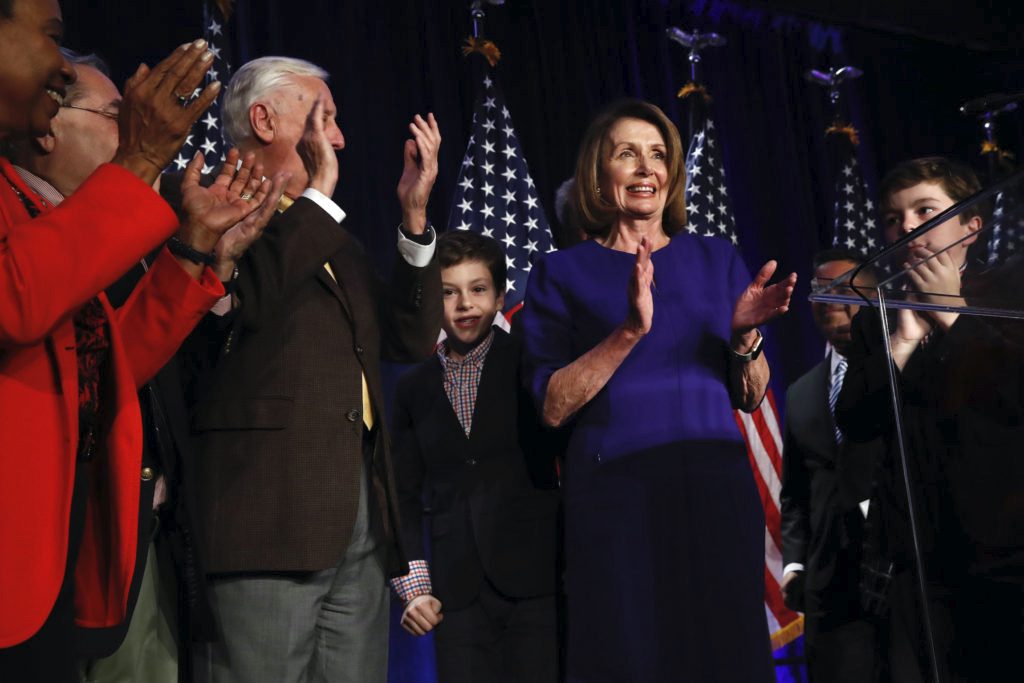Table Of Content
- Kevin McCarthy falls short in 1st vote for House speaker
- Republicans nominate Mike Johnson for speaker after spurning Emmer.
- The House can't conduct business until the speaker vote is finished. Here's how the election will work.
- How the House of Representatives elects a speaker
- What the backlash to student protests over Gaza is really about

In a foretelling of things to come, 25 Republicans voted for someone other than Boehner earlier this year. Nearly all the Democrats voted for Nancy Pelosi of California, who was speaker before Boehner. You just have to be nominated, no House seat required.All candidates for speaker must be nominated by members of the House, but they don’t need to be elected lawmakers of the House.
Kevin McCarthy falls short in 1st vote for House speaker
The chairman of the Appropriations Committee was nominated by the party conference but withdrew after a magazine story accused him of marital infidelity. But this time around several Democrats have indicated they would cross the aisle to support Johnson and frustrate Greene & Co. if it came to a vote. Democratic leaders have indicated they are open to this, and it essentially repeats the strategy that allowed Johnson to pass the Ukraine portion of the aid bill earlier this month.
Republicans nominate Mike Johnson for speaker after spurning Emmer.
"We've had members of the majority party threatening not to vote for their party's nominee on the floor." The clerk calls lawmakers in alphabetical order by last name who then announce their choice for speaker by calling out the last name of the candidate. This differs from the usual electronic voting conducted in the House on legislation. The clerk first calls for a quorum to establish that enough members are present to conduct business and then proceeds immediately to the speaker election – before the swearing in of newly elected members. In the 2006 midterm elections, the Democratic Party regained control of the House of Representatives.
The House can't conduct business until the speaker vote is finished. Here's how the election will work.
Two colleagues had spoken up to say they would join Greene in such a vote, giving her enough to defeat the speaker if all the chamber's Democrats voted to do the same. That's what the Democrats did when a motion to vacate the chair ousted the last Republican speaker, Kevin McCarthy, last fall. Additionally, since many speakers held office for multiple terms, often with non-consecutive periods, the time listed for each speaker represents the total length of their time as speaker. It is important to note that the period between the adjournment of one Congress and the convening of the next Congress is not included in the calculations. For instance, Nathaniel Macon served as speaker during both the 8th and 9th Congresses, but the eight-month gap between the two Congresses is not included in his service duration.
The Day in Photos
John Boehner was elected speaker when the 112th Congress convened on January 5, 2011, and was subsequently re-elected twice, at the start of the 113th and 114th Congresses. Rayburn's successor, Democrat John W. McCormack (served 1962–1971), was a somewhat less influential speaker, particularly because of dissent from younger members of the Democratic Party. During the mid-1970s, the power of the speakership once again grew under Democrat Carl Albert.
But many previous speakers, including outgoing Speaker Nancy Pelosi, have ascended to the dais with fewer votes than that, as some members voted present instead of calling out a name. Every lawmaker voting “present” lowers the overall tally needed to reach a majority. But once Jan. 3 comes along, members are not obligated to vote for the party’s chosen candidate. While it has been the tradition for the speaker candidate to be a member of the House, it is not required. In past years, President Biden, former President Trump and even a senator, Republican Rand Paul of Kentucky, have received votes for House speaker.

Those votes — and others cast by Republicans for people other than Jordan — are currently preventing Jordan from winning the speakership. Jordan — or any other GOP speaker candidate — can only afford to lose three Republican votes if all Democrats are present. In trying to get votes for the speakership, Jordan told lawmakers that he had a plan for how he would deal with the upcoming government funding deadline. He told his conference he wanted to use a 1% cut to try to negotiate with the White House to cut spending, CNN’s Lauren Fox said.
Third House speaker vote set for Friday morning, says Jordan's office - CBS News
Third House speaker vote set for Friday morning, says Jordan's office.
Posted: Thu, 19 Oct 2023 07:00:00 GMT [source]
What the backlash to student protests over Gaza is really about
Any candidate for speaker can lose only a handful of votes and still win the speakership because Republicans hold such a small majority in the House. In a secret-ballot vote on Tuesday night, Mr. Johnson got 128 votes, with 44 Republicans voting for nominees not on the ballot, including 43 for Mr. McCarthy, whom many view as unfairly ousted. Still, in a separate vote afterward, only a few Republicans indicated they would not back Mr. Johnson on the floor, while about 20 Republicans were absent. Representative Jim Jordan of Ohio, a founder of the hard-right House Freedom Caucus and someone Mr. Johnson has described as a mentor, was the next member to be elected speaker designate in a secret ballot.
Republicans Nominate Louisiana’s Mike Johnson for House Speaker
Republican leader Kevin McCarthy, of California, needs a majority of members present to vote for him — which makes the magic number 218 (but that math could get tricky; see below). If he fails to get that level of support, it would be the first time since 1923 that the House would need multiple ballots in a speaker election. McCarthy made a series of concessions to his critics in order to sufficiently mollify them and avoid a political deadlock.
Families in tow, the members of the new Congress prepare to be sworn into the House and Senate for the start of the two-year legislative session. But a challenge was quickly raised by Rep. Andy Biggs, R-Ariz., a conservative former leader of the Freedom Caucus, who was nominated by a fellow conservative as speaker. More than a dozen Republicans peeled away, opposing McCarthy with votes for Biggs or others in protest. With McCarthy coming up short again on Wednesday, the clerk will repeat the roll call vote until he is able to garner a majority or a motion to adjourn is approved.
Nancy Pelosi was elected Speaker of the House, becoming the first woman to hold the position. One core demand from the holdouts this time is that McCarthy reinstate a rule that allows any single lawmaker to make a “motion to vacate the chair” — in short, to call a vote to remove the speaker from office. But McCarthy has failed to win over a core — and potentially growing — group of right-flank Republicans led by the conservative Freedom Caucus, despite weeks of closed-door meetings and promised changes to the House rules. A new generation of Trump-aligned Republicans led the opposition to McCarthy.
However, he’s not going to wield the same power as Nancy Pelosi did, or even Paul Ryan and John Boehner. After decades where the position of speaker has grown increasingly powerful, the deal reached Friday reduces the role of the office. Jordan had only 200 votes Tuesday, and then Wednesday, he had lost ground and ended up with 199 Republicans supporting him, well short of the 217 he needed to win. The former SNP leader, who resigned from that post in 2004 following poor European Parliament election results, is clearly tempted to once again step into the spotlight following his year on the backbenches.
Whether working on Capitol Hill or in his / her congressional district, a representative’s schedule is extremely busy. Often beginning early in the morning with topical briefings, most representatives move quickly among caucus and committee meetings and hearings. They vote on bills, speak with constituents and other groups, and review constituent mail, press clips and various reports. In a letter to colleagues earlier Wednesday, Johnson outlined his first priority will be trying to pass the remaining spending bills that have so far languished in the House one by one.
Texas Attorney General Ken Paxton had asked the Supreme Court to block "the use of unlawful election results without review and ratification by" the four state legislatures and allow them to appoint a different slate of presidential electors. Democrats will nominate Minority Leader Hakeem Jeffries and they are being urged to vote for him, according to a notice from Democratic whip Katherine Clark's office. Rep. Pete Aguilar , the Democratic caucus chair, will deliver the nominating speech for Jeffries. "Today is the day that House Republicans will humbly look in our hearts and elect Mike Johnson as speaker of the People's House," she said. The California Democrat noted Johnson's role in the effort to overturn the results of the 2020 election.
Jim Jordan out as Republican nominee for House speaker: Highlights - NBC News
Jim Jordan out as Republican nominee for House speaker: Highlights.
Posted: Fri, 20 Oct 2023 07:00:00 GMT [source]
The negotiations went up until Monday night when members of the ultra-conservative Freedom Caucus presented McCarthy with their final offer, which included demands for certain committee assignments in exchange for their votes. Rep. Kevin McCarthy, R-Calif., on Tuesday won the party’s nomination to become the next House speaker, but the real test will be in January when the new members take office and hold the deciding vote. Emmer voted to certify the 2020 election results after Jan. 6, 2021, but signed onto an amicus brief asking the Supreme Court to overturn the presidential election results.














